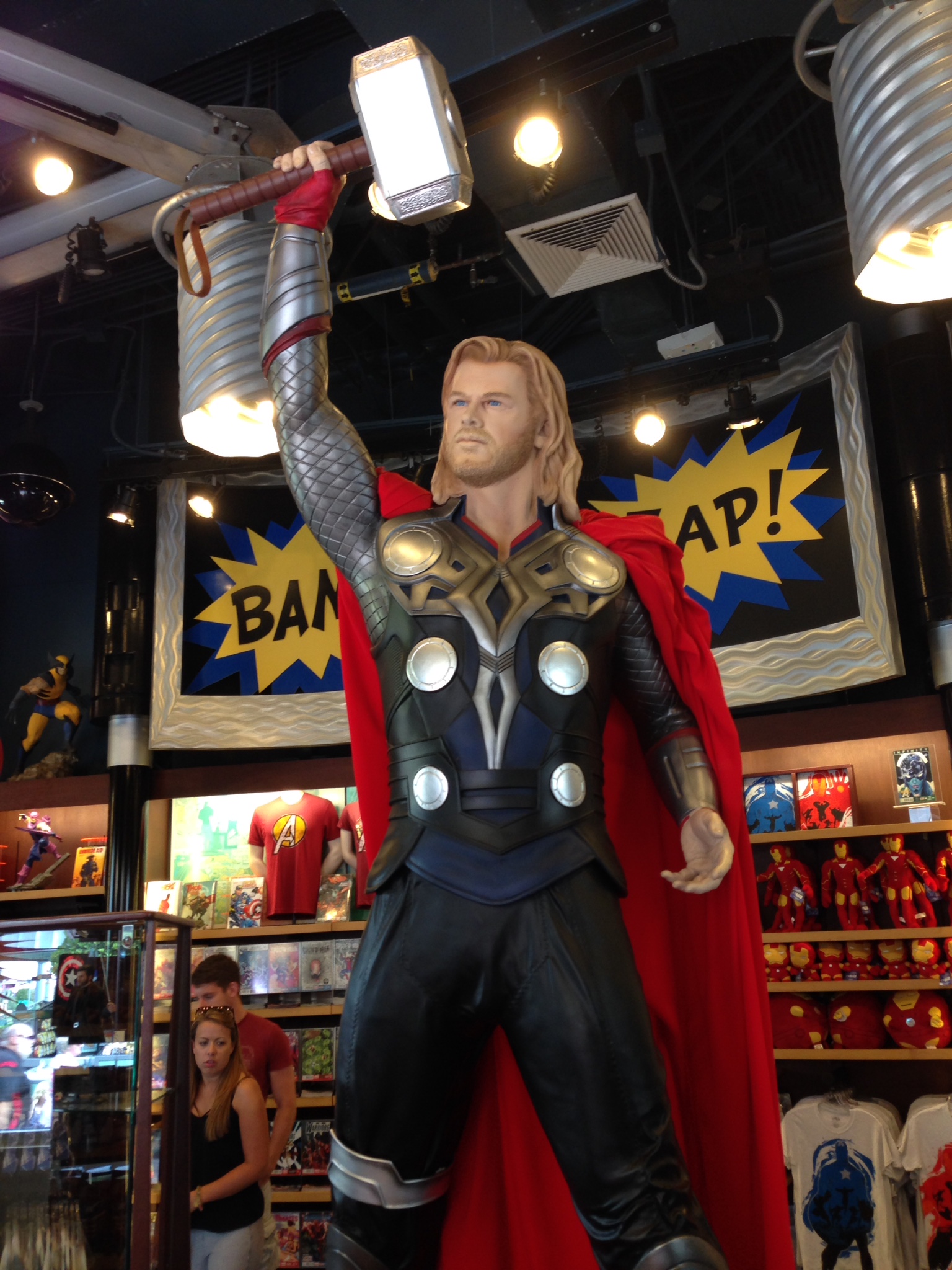Disney is dealing with Comcast. Disney isn't dealing with a small outfit. Comcast is ruthless. It's a tad bit of a juvenile statement to say that this will eventually happen. Ironclad legal agreements are made for many reasons. It would be naive (and I think some have made posts as such) to not assume that Universal's management at the time had the foresight to make such a provision knowing that MARVEL could end up in the hands of another corporation. Ironclad legal provisions. PERIOD. That's all that is needed to know here. Things sitting well and legal frameworks are two different animals and sitting well is irrelevant to legal. Universal has a popular area that draws visitors while Disney spends endlessly to market and further the MARVEL brand. It's truly the best of all worlds for Universal.
What are you alluding to about Looney Tunes? Looney Tunes was always under the Warner Bros. umbrella. They licensed characters out to various parks, but the properties never had the fiscal value of Disney especially when home media began with VHS, etc.
The text below is copied from Wikipedia. As you can see here, the rights to Looney Tunes were all over the place and were finally reassembled when Warner bought Turner.
When the
Looney Tunes and
Merrie Melodies began in 1930, although Warner Bros. retained the rights to the cartoons and the
Looney Tunes and
Merrie Melodies brandnames,
Harman and Ising owned the rights to the Bosko characters. When Harman and Ising left Warner Bros. in 1933, their former producer Leon Schlesinger started his own studio for Warner Bros. continuing the
Looney Tunes series. Harman and Ising retained the rights to Bosko and began making Bosko cartoons at
Metro-Goldwyn-Mayer in 1934. However these cartoons were not a success and in 1937 MGM fired Harman and Ising and formed their own studio to create
MGM cartoons, with Harman and Ising retaining the rights to Bosko. Time Warner eventually acquired the characters from their estates. Meanwhile the Schlesinger studio continued to make popular cartoons until 1944 when Schlesinger sold his studio to Warner Bros. and since then, Warner Bros. has owned all rights to all post-1933 characters created by Leon Schlesinger Productions and Warner Bros. Cartoons. The rights to individual cartoons however are in other hands.
In 1955, Warner Bros. sold its black-and-white
Looney Tunes (plus the black-and-white
Merrie Melodies made after Harman and Ising left) into television syndication through their sale of the cartoons to Guild Films.
[23] The copyright to those cartoons were assigned to
Sunset Productions. These cartoons were distributed by Guild Films until it went bankrupt and was bought by Seven Arts. Seven Arts bought WB, and WB gained rights to the black and white cartoons.
In 1956,
Associated Artists Productions (a.a.p.) acquired for television most of Warner Bros' pre-1950
[24][25] library, including all
Merrie Melodies(except for those sold to Sunset and
Lady, Play Your Mandolin!) and color
Looney Tunes shorts that were released prior to August 1948. Unlike the sale to Sunset Productions, a.a.p. was allowed to keep the Warner titles intact and simply inserted an "Associated Artists Productions presents" title at the head of each reel (as a result, each
Merrie Melodiescartoon had the song "
Merrily We Roll Along" playing twice).
[26] Two years later,
United Artists bought a.a.p. (which also bought Paramount's
Popeye films) who merged the company into its television division;
United Artists Television.
In 1981, UA was sold to MGM, and five years later,
Ted Turner acquired the pre-May 1986 MGM library. He also acquired the rights to the a.a.p. library. In 1996, Turner's company,
Turner Broadcasting System (whose
Turner Entertainment division oversaw the film library), was purchased by
Time Warner who also owned Warner Bros. Today,
Warner Home Video holds the video rights to the entire
Looney Tunes/
Merrie Melodies animated output by virtue of Time Warner's ownership of Turner Entertainment.



